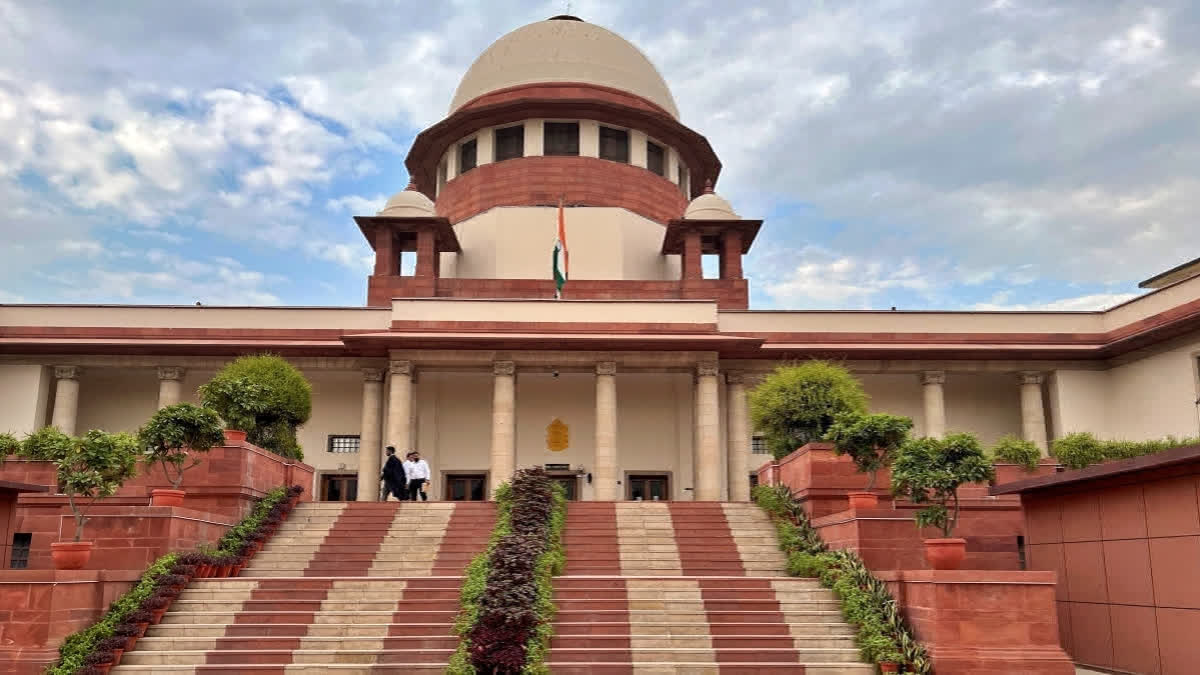New Delhi: The Supreme Court Tuesday directed the Bihar government to treat a candidate who had wrongly written his Date of Birth in police constable recruitment as "passed", while highlighting that "justice cannot be forsaken on the alter of technicalities."
Vashist Narayan Kumar, who hails from a small village named Dheodha in Bihar, committed an inadvertent error while recording his date of birth (DoB) in an online application for the recruitment of a police constable. In 2017, he filled the online application with assistance from a person running a cyber café at Pakribarawan - a nearby town. On June 11, 2018, the final results reflected Kumar having failed the recruitment process. Kumar, 26, ran from pillar to post to seek relief and fought a long and draining legal battle.
On Tuesday, the Supreme Court, while hearing his petition said justice cannot be forsaken on the alter of technicalities, and directed the Bihar government to treat Kumar as a candidate who has “passed”, in the selection process held under the advertisement issued in 2017 by the Central Selection Board (Constable Recruitment), Patna with the date of birth as December 18, 1997.
A bench comprising Justices J K Maheshwari and K V Viswanathan said: “In this case, the appellant has participated in the selection process and cleared all the stages successfully. The error in the application is trivial which did not play any part in the selection process. The State was not justified in making a mountain out of this molehill”.
Justice Viswanathan, who authored the judgment on behalf of the bench, said perhaps the rarefied atmosphere of the cybercafe, got the better of the appellant. “He omitted to notice the error and even failed to avail the corrective mechanism offered. In the instant case, we cannot turn a Nelson’s eye to the ground realities that existed”, said Justice Viswanathan.
The bench, citing Prince Jaibir Singh vs. Union of India & Ors (2021), said that this court rightly observed that though technology is a great enabler, there is at the same time, a digital divide. The state government had argued that that many candidates applied in more than one place and hence there could be deliberate tweaking in the date of birth to take advantage of the selection process in more than one district or region.
The bench noted that if any such device or trick had been adopted, the state would have easily detected the same and placed the same before the court. “It is a trivial error which appears to be a genuine and bona fide mistake. It will be unjust to penalise the appellant for the same”, said the bench.
The state had contended that the instructions clearly stipulated that if two or more candidates obtain the same marks in the physical eligibility test, their relative rank in the final merit list could be determined on the basis of their date of birth and urged the court to not grant any relief to the petitioner. Kumar, while filling up the form, by an inadvertent error recorded his date of birth as “08.12.1997” instead of “18.12.1997”
The apex court said Kumar derived no benefit from it either way, as he fulfilled the eligibility criteria and the age requirement. Kumar had sought for the relief in the nature of a mandamus to the respondents to consider his claim for selection and direct them to issue an appointment letter treating the date of birth as 18.12.1997, as reflected in his educational certificates
The respondents vehemently opposed the writ petition. It was their stand that the advertisement had clearly stipulated that candidates should correctly mention their date of birth according to their 10th board certificate; that if any discrepancy was found while matching the information, the candidature would be cancelled.
A single judge at Patna High Court, after referring to the clauses in the advertisement, including the clause providing for correction, held that since incorrect information was provided, no relief could be given. Kumar filed a letters patent appeal to the division bench of the high court, which was dismissed. The division bench, while affirming the order of the single judge, additionally recorded a finding that the appellant had not sought for quashing of the result, as declared on June 11, 2018, on the website. Kumar moved the apex court challenging the high court order.
The apex court said considering the background in which the error occurred, “we are inclined to set aside the cancellation”. The apex court said it is not impressed with the finding of the division bench that there was no prayer seeking quashing of the results declared over the web. “A reading of the prayer clause in the writ petition indicates that the appellant did pray for a mandamus directing the respondents to consider the candidature treating his date of birth as 18.12.1997 and also sought for a direction for issuance of an appointment letter. A Writ Court has the power to mould the relief. Justice cannot be forsaken on the alter of technicalities”, said justice Viswanathan.
The apex court set aside the division bench judgment and directed the Bihar government to treat Kumar as a candidate who has “passed”, in the selection process. “We further direct that, in the event of there being no vacancy, appointment letter will still have to be issued on the special facts of this case. We make the said direction, in exercise of powers under Article 142 of the Constitution of India. We further direct that the State will be at liberty in that event to adjust the vacancy in the next recruitment that they may resort to in the coming years”, said the bench, adding that compliance with its order be made within a period of four weeks.
Read More



